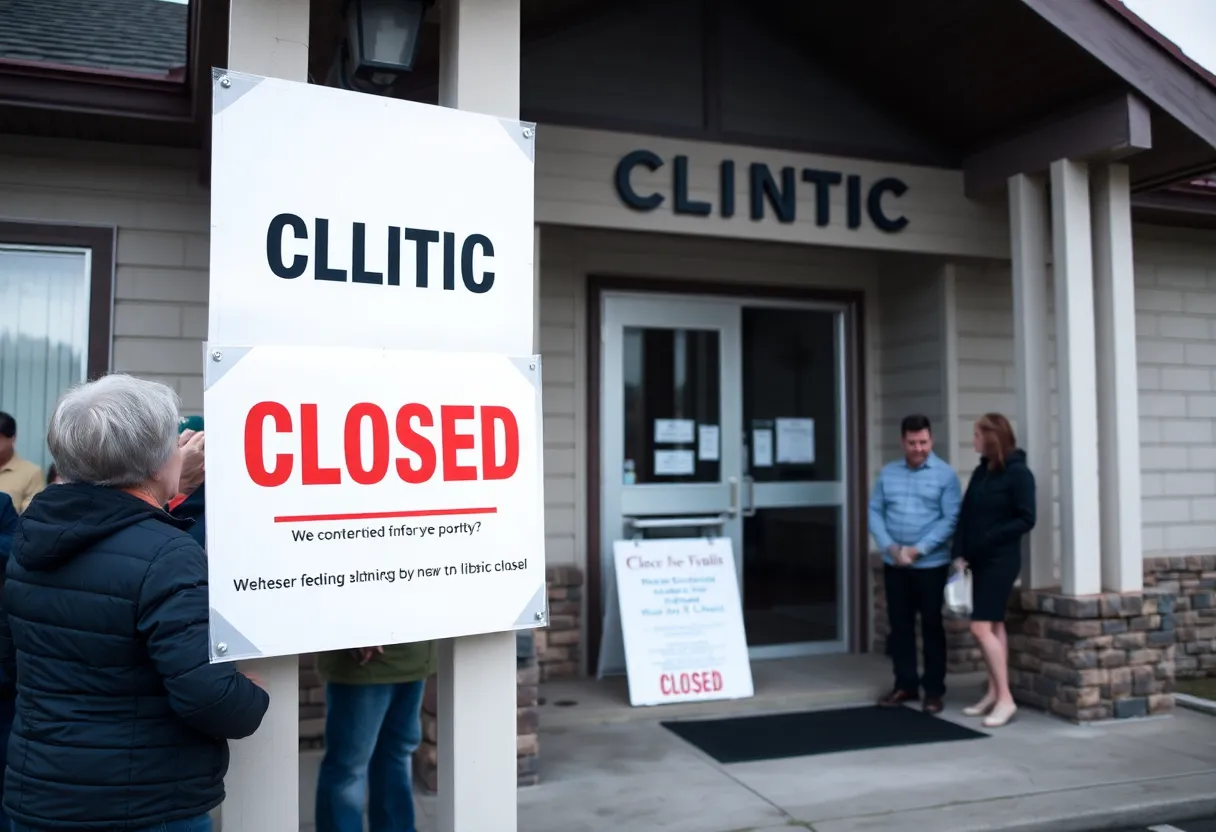News Summary
The closure of the Center for Asbestos Related Disease (CARD) clinic in Libby, Montana, raises serious concerns for mesothelioma patients and community health.
The Closure of CARD: A Dire Blow for Mesothelioma Patients in Libby, Montana
The landscape of healthcare in Libby, Montana, has dramatically shifted with the shuttering of the Center for Asbestos Related Disease clinic (CARD), a facility that has dedicated the last 25 years to serving individuals suffering from mesothelioma and other asbestos-related diseases. The clinic’s closure signals a critical void in available health services for a community already burdened by the devastating impacts of asbestos exposure.
A Legal Hammer Falls on the Lifeline
This unexpected turn of events can be traced back to a judgment issued against CARD, which emerged from a contentious lawsuit filed by BNSF Railway, owned by Warren Buffet. The jury sided with BNSF, concluding that 337 out of more than 2,000 diagnoses provided by the clinic were fraudulent. The court’s decision has not only resulted in the clinic’s abrupt end but has also mandated a staggering payment of $3.1 million to settle the case, prompting the Lincoln County Sheriff’s Office to enforce a writ of execution compelling the clinic to surrender its assets.
The Community’s Outcry
In the aftermath of the closure, numerous local leaders and residents have voiced their concerns regarding the significant implications for community health. They argue that CARD was the region’s sole provider of screenings and medical information regarding asbestos-related illnesses, making its absence all the more pronounced. The fear is palpable: the closure may lead to a significant decline in screenings and early detection of mesothelioma and other serious conditions, ultimately jeopardizing lives.
A Promise to Fight
Despite the bleak circumstances surrounding the clinic’s shut down, former staff, including executive director Tracy McNew, remain resolute in their commitment to resurrecting CARD. They maintain that their dedication to patients and the Libby community is unwavering. The stakes are incredibly high as the clinic’s services are not merely full of red tape but represent a lifeline for many suffering from the long-term effects of asbestos exposure.
Government Support and Legal Maneuvering
In a fascinating twist, Assistant U.S. Attorneys have intervened, contesting the order against CARD. They argue that BNSF is erroneously attempting to collect the judgment on behalf of the federal government, noting that CARD is funded federally. The Montana U.S. Attorney’s office has echoed these sentiments, claiming that BNSF’s aggressive collection efforts are unlawful due to the clinic’s federal funding status, an argument that could keep the doors open for CARD yet again.
The Shadow of Asbestos in Libby
The plagued history surrounding asbestos exposure in Libby is hard to ignore. Since the original vermiculite mine commenced operations in 1881, the town has been grappling with health repercussions, culminating in BNSF facing multiple lawsuits related to this tragic history. In fact, a verdict in 2024 held the railway company responsible for numerous deaths linked directly to asbestos exposure in the local community.
What’s Next for CARD and the Libby Community?
With more than 3,400 diagnoses of asbestos-related diseases certified and over $20 million in federal funding received, CARD has played an integral role in supporting those impacted by industrial negligence. The closure has left many questioning the future: will the clinic remain an essential voice for the local population, or will it fade into memory along with the lives it helped? As federal funding sources and community advocacy efforts come into play, hope remains that CARD can rebound from this setback.
Conclusion: The Urgency of Community Health
As CARD’s saga unfolds, the community rallies for its return, recognizing that the fight against mesothelioma and asbestos-related diseases is far from over. The clinic’s contribution to public health cannot be overstated, and with local leaders and government officials now striving to salvage its operations, the future remains uncertain yet tantalizingly hopeful for countless residents facing the dire consequences of asbestos exposure.
Deeper Dive: News & Info About This Topic
HERE Resources
Asbestos Trusts Set to Destroy Vital Evidence, Raising Alarm Among Victims and Legal Experts
Libby, Montana: A Community’s Health Care Lifeline Falls Silent
Tragic Death of Retired Carpenter Linked to Asbestos Exposure
Asbestos Concerns Haunt Families of Wycombe Hospital
High Court Seizes Assets in Asbestos Corruption Case
Asbestos Concern Following Piggery Demolition in Cork
Healthcare Hero Faces Grim Diagnosis: Mesothelioma Linked to Asbestos Exposure
The Dark Legacy of Asbestos at Electric Boat Shipyard
Rising Concern Over Asbestos Exposure Among Veterans
Raising Awareness: National Military Appreciation Month and Veteran Health Risks
Additional Resources
- Mesothelioma Guide: Asbestos Clinic in Libby Montana Closes
- Wikipedia: Mesothelioma
- Asbestos.com: Clinic Helped Libby Survivors Shuttered
- Google Search: Libby Montana asbestos exposure
- The Western News: Libby’s CARD Clinic Closed Following Court Ruling
- Google Scholar: mesothelioma Libby Montana
- AP News: Libby Montana Asbestos Clinic Shuttered
- Encyclopedia Britannica: Asbestos Related Diseases



















